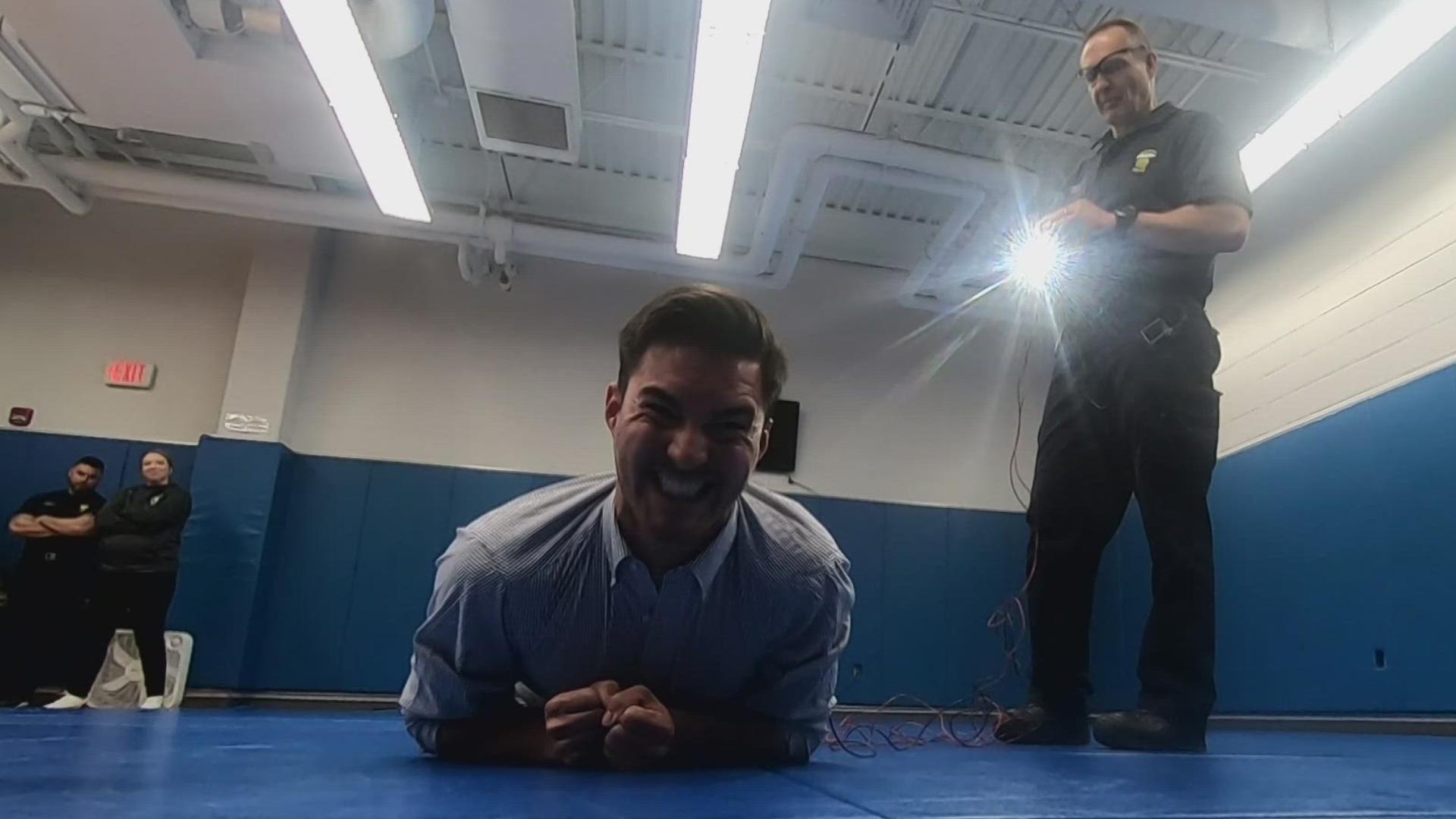TOLEDO, Ohio — WTOL 11 reporter Michael Sandlin attended the Toledo Police Department's 10-week Citizens Police Academy to get an inside look at policing and shares his experience:
If you ever wanted to get a firsthand look at police officer training, the Toledo Police Department offers a 10-week course that does just that.
Its Citizens Police Academy gives people hands-on law enforcement experience.
And I'm a recent graduate myself.
I was drawn to this program for two reasons. First, I often find myself talking about stories that connect directly to policing; and second, especially in today's modern age, we often see many comments and critiques about police training from the public.
So I thought this would be a good opportunity for myself and the general public to get a behind-the-scenes look at how the people entrusted with our safety are trained, and I learned some fascinating lessons and met some incredible people along the way.
Since 1990, the Toledo Police Department has been holding a program to help build new inroads with the community.
The Citizens Police Academy gives regular people just a taste of what the 32 weeks of police training is actually like.
Because of the COVID-19 pandemic, this is their first class in five years, but this group made up for lost time. Drawn here for a litany of different reasons, the group consisted of about 25 people from all walks of life.
"I'm a semi-retired attorney," Walter Celley, one of my fellow graduates, said.
"I used to work in music and television in Canada and now I'm a homemaker for my husband," Tara Oram said.
"I'm currently on disability retirement," said Carey Conley.
"I retired from AT&T," said Robert Rivers.
Different lifestyles, different people, but they all shared one thing in common: a genuine and healthy curiosity and respect for the department, showing up for three hours every week ready to learn.
"Every week was a wealth of knowledge," Oram said.
A different member of the department had a lesson prepared for every class, and week one kicked off with an introduction to the police museum and a talk from the internal affairs captain, explaining that anytime you see bad behavior from officers, they're the ones that investigate it.
But it wasn't until week two really kicked things into high gear with a demonstration of the department's various non-lethal weaponry... on me.
You see, all officers in the department are tased during training so they can understand what they're inflicting on others in the field. So I decided I should get a taste too, and endured what was probably the most painful five seconds of my life.

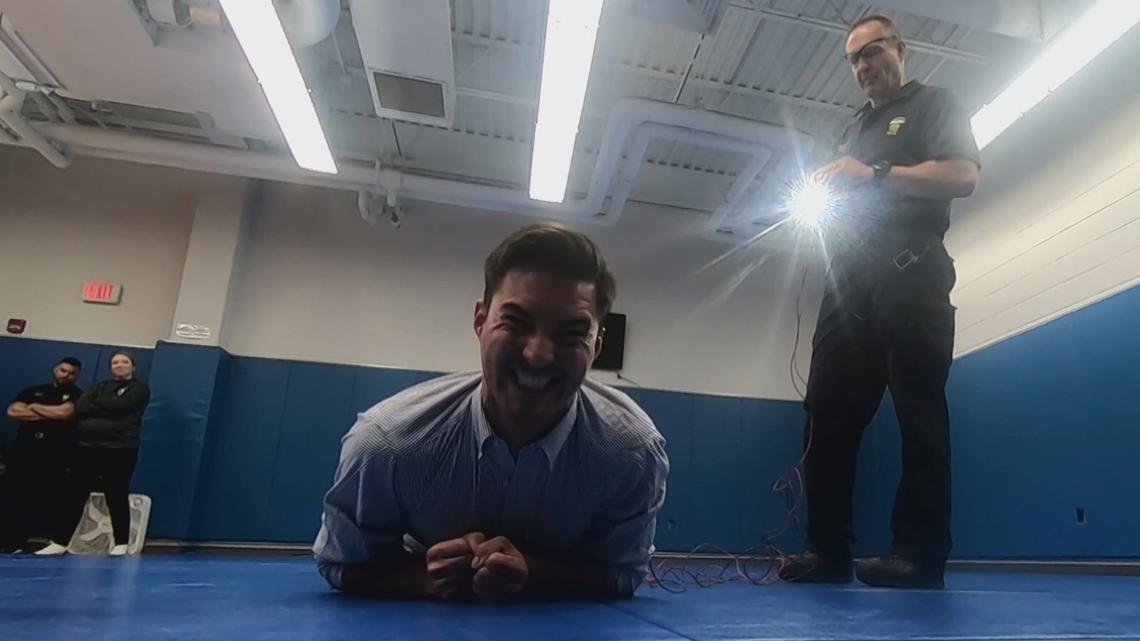
Conley, one of the two women who did it with me, said it was even worse than her knee surgery.
"As soon as you get tased, no thoughts, everything goes out of your head," Conley said. "But now we both have a perspective few people have, anytime we see the videos of people getting tased online, we know what they're experiencing."
For week three, we were back in the classroom, but we were all were locked in hearing from a member of the gang task force.
"What do we have in Toledo? We have Bloods, Crips, Folks, Gangster Disciples, Sureno 13, Latin Counts," Sgt. Mel Stachura said.
RELATED: A night in the life of Toledo's gang task force
"I honestly had no idea about the level of gang activity in the city of Toledo," Celley said, recalling the class.
The classes even tied together nicely, because only a few weeks after hearing about the gangs and their crimes, one of TPD's homicide detectives, Lt. Dan Gerken, came in to teach a class about how they had solved a gang-related shooting, revealing just how much work goes into solving a murder step by step.
In the sixth week of the Citizens Police Academy, we took our first field trip away from the Owens Community College training campus and found our new classroom inside a nondescript brick building downtown.
For this week, we were learning from some of the department's most hardened operators, the SWAT team.
"When situations get bad, there's a barricaded gunman, there's a situation that's a little more high risk, that's when we get called in," said Sgt. Matt Slaman.
Their armor, designed to stop bullets, is even heavier than you would expect. Much of their gear, which they showed us outside, is designed to bust through doors, so we got another hands-on opportunity, this time swinging around a battering ram.
Once again, the same two ladies who joined me for taser training were the first to volunteer, grabbing one side of the battering ram and slamming open the door together.
The week following, we were visited by the vice and narcotics units, which deal with human trafficking and drugs.
Two of the officers we met had gone undercover in the city and revealed that fentanyl continues to be one of the city's biggest motivating factors for crime. We got to hold some of the various drugs people have been busted with, including a bag of black tar heroin.

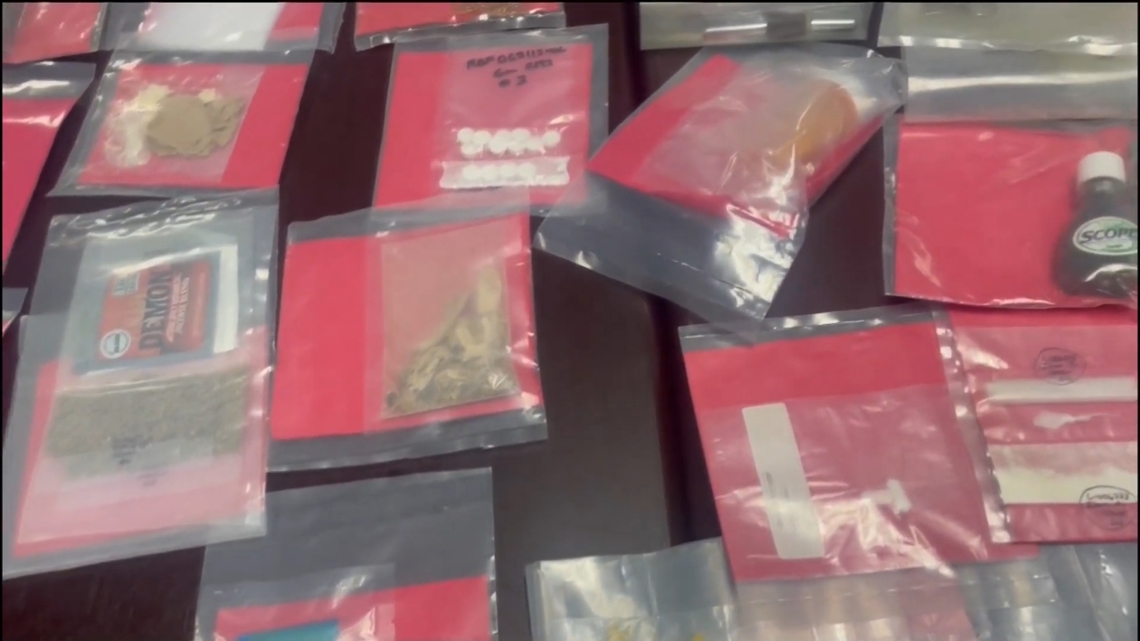
Meanwhile, the human trafficking side was sometimes hard to hear; stories of children being rescued from horrible situations and migrant workers being found in shipping containers. This detective made clear despite the horror of his job description, the satisfaction of saving people from these kinds of situations was its own kind of reward.
But it was the next week — week eight of the whole course — that might just have been everyone's favorite: firearms training at TPD's gun range.
It was there we were given patient instructions about how to properly, and safely, use their weapons, getting a chance to try pistols and shotguns alike. Some people took to it better than others.
"I have never shot a shotgun before, and I was a little sore for a few days from the weight of the shotgun," Oram said.

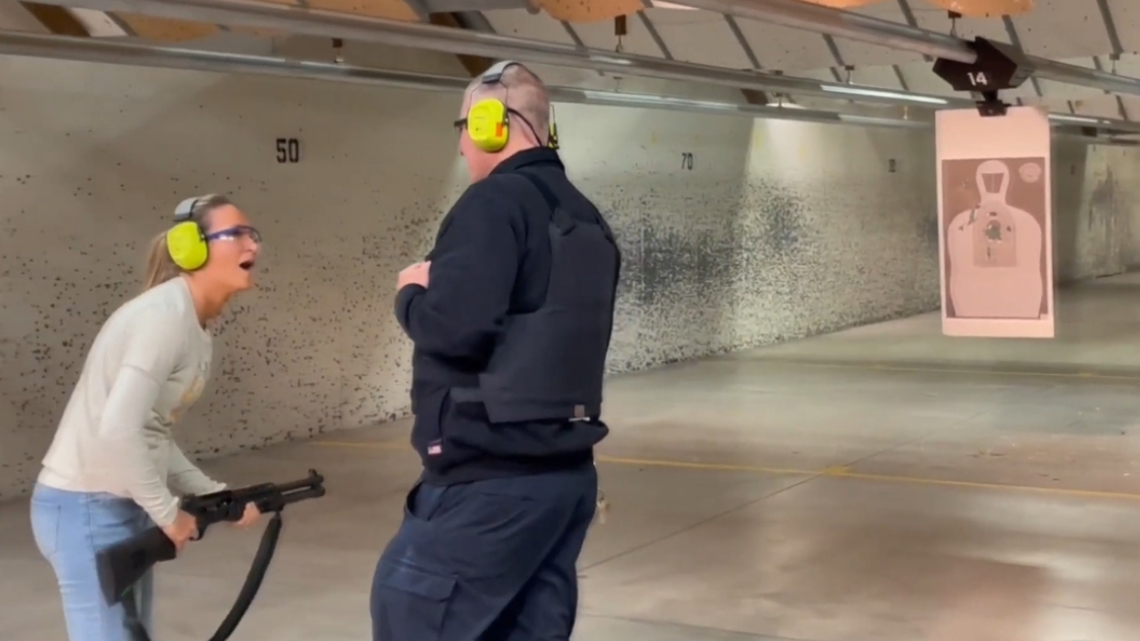
It was a fun afternoon, but the officers were clear throughout the whole course, using your weapon is only a last resort, an option you only take when your life or someone else's is in danger.
The trainers said oftentimes, situations can be de-escalated without resorting to violence.
The following week, we got to apply that lesson seeing how we would handle a potentially dangerous traffic stop.
"I didn't even think of pulling my gun out, I kept a safe distance and just went from there," Rivers said.

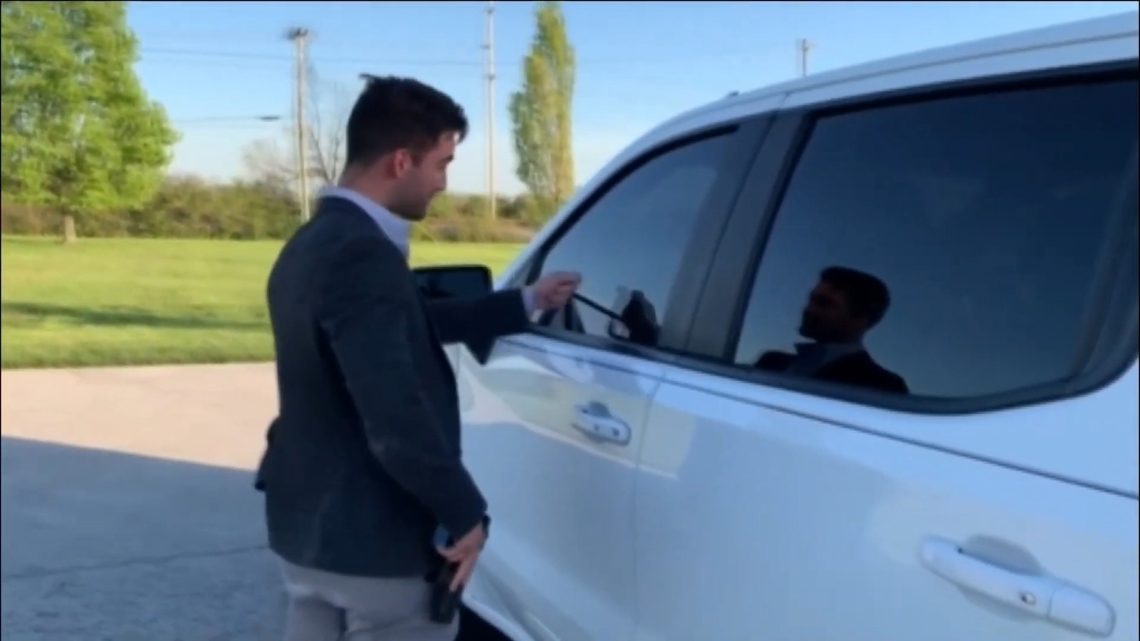
And before we knew it, the 10 weeks were over and Chief Troendle was handing us our diplomas.
While our time with the police department was over, the lessons learned have left a permanent impression.
"Would you recommend this to other people?" I asked Celley on the day of our graduation.
"Oh, absolutely," he replied.
"Everyone here has been awesome, all the officers involved have been friendly, polite," said Conley.
"You think our officers go out and put themselves on the line, and yes that's true, but there's so much more," Oram said.
As for myself, someone who reports on policing all the time, this changed my impression of the department too.
It showed me just how hard policing can be, and how hard making those split-second decisions can be. It can be one thing to watch a video of officers on the job, but it's another thing entirely to walk a mile in their shoes and realize they might just have one of the hardest jobs in the world.
If people are interested in finding out for themselves, representatives from the department tell me that they might be planning another class as early as next fall, so we'll let people know as soon as we learn more about another class being available.

